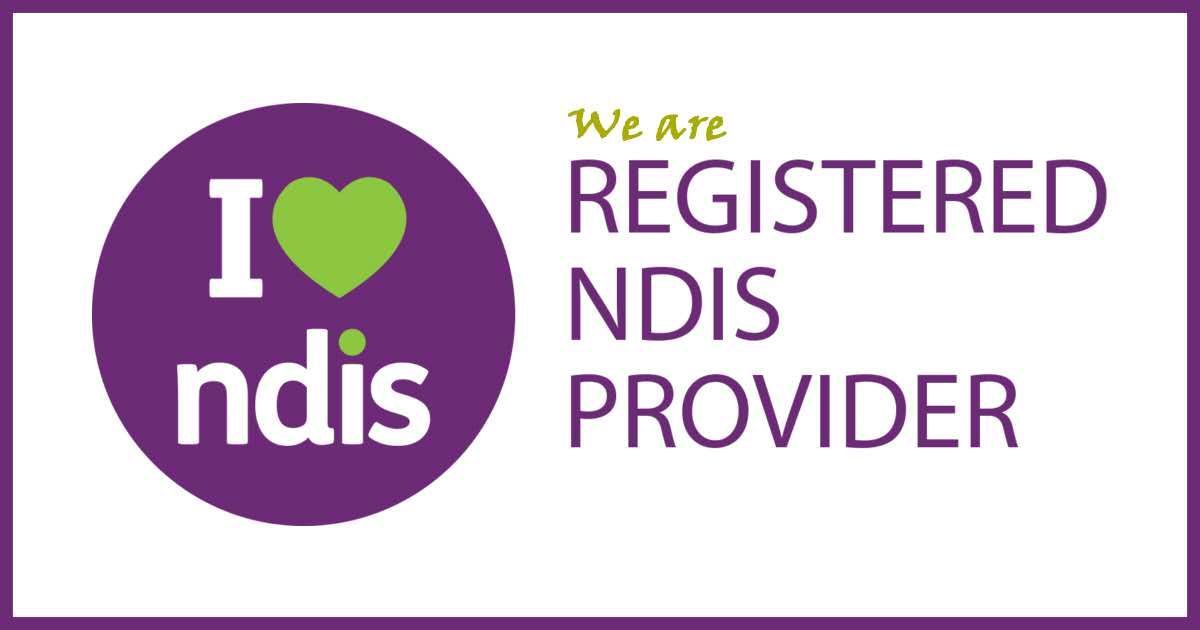The Importance of Reliable Nursing Staffing Solutions for Hospitals
The Importance of Reliable Nursing Staffing Solutions for Hospitals
In the fast-paced and ever-evolving healthcare industry, the cornerstone of delivering high-quality care hinges on the availability of qualified nursing professionals. As we delve into the complexities and critical nature of hospital staffing solutions, it becomes apparent that nursing staffing agencies play a pivotal role in maintaining the balance between demand and supply of skilled nursing staff. The importance of these agencies cannot be overstated, as they ensure that hospitals are equipped with competent personnel, ready to meet the needs of patients with a range of health issues. This provision not only supports the healthcare sector's infrastructure but also significantly contributes to patient outcomes and hospital efficiency.
Our exploration into this topic will uncover the challenges hospitals face in nursing staffing, highlighting how crucial reliable nursing staffing solutions are to the functioning of these institutions. We will discuss strategies for developing robust nursing staff solutions that can alleviate these pressures and improve overall hospital performance. Furthermore, we will look at case studies demonstrating the successes hospitals have achieved by enhancing their staffing solutions, emphasising the transformative impact of employing a nursing staffing agency. Through this examination, we hope to underscore the significance of these agencies in not just filling vacancies but in ensuring that hospital staffing solutions are resilient, adaptable, and capable of meeting the ever-changing demands of healthcare.
Challenges in Nursing Staffing in Hospitals
Shortage of Qualified Nurses
The healthcare sector is currently grappling with an unprecedented shortage of nurses, fueled by a combination of growing demand for services and a decline in graduations from prelicensure nursing education programs. This shortage is exacerbated by a decrease in workforce participation by licensed nurses, attributed by some researchers to deteriorating working conditions in hospitals. The situation is further complicated by an aging workforce and the phenomenon known as the Great Resignation, which saw a significant number of healthcare professionals, including nurses, leaving their jobs.
High Turnover Rates Among Nursing Staff
Nurse turnover has detrimental effects on both nurse and patient outcomes. Increased annual turnover rates among registered nurses (RNs) are associated with the physical and mental health of nursing staff and negatively impact patient satisfaction, unit-acquired pressure ulcers, and medical errors. The turnover of newly licensed registered nurses (NLRNs) is particularly high, contributing significantly to staffing shortages. This high turnover can be attributed to factors such as physical and emotional exhaustion, depersonalisation, and dissatisfaction with work conditions.
Budget Constraints in Hiring and Retention
Budgetary considerations and the features of local nurse labor markets significantly affect staffing levels set by hospital administrators. Administrative practices, including the structure of the nursing staff and the model of care used, are influenced by budget constraints. These constraints make it challenging to hire and retain enough qualified nurses, impacting the standard of care for patients, increasing the likelihood of nurse burnout, and making the workplace difficult.
Impact on Patient Care and Safety
Inadequate nurse staffing levels have a direct impact on patient care and safety. Research has linked nurse-to-patient ratios and overall nurse workload to safety factors such as medication errors, pneumonia, and even in-hospital mortality. Hospitals with high patient-to-nurse ratios experience higher rates of nurse burnout and dissatisfaction, and patients in these facilities face increased mortality and failure-to-rescue rates. The shortage of nurses also leads to overcrowding in emergency rooms, which can result in longer hospital stays, additional procedures, and increased risk of death.
The Significance of Reliable Nursing Staffing
Enhancing Patient Safety and Quality of Care
Reliable nursing staffing is crucial for enhancing patient safety and the overall quality of care. With adequate staffing levels, nurses can maintain vigilance at the bedside, crucial for ensuring patient safety. Studies have demonstrated an association between nurse staffing ratios and patient safety, showing increased risks of safety events, morbidity, and mortality as patient-to-nurse ratios rise. Adequate staffing allows for better monitoring tailored to patients' conditions, ensuring early recognition of deterioration and a rapid, interdisciplinary response to issues.
Reducing Medical Errors and Adverse Events
The presence of sufficient nursing staff directly impacts the reduction of medical errors and adverse events. Missed nursing care, a phenomenon occurring from delayed or incomplete actions due to understaffing, has been strongly associated with higher numbers of patients per nurse. This omission of care leads to medication errors, infections, falls, and other preventable complications. By ensuring adequate staffing levels, hospitals can minimise these risks, promoting a safer healthcare environment.
Improving Patient Satisfaction and Outcomes
Substantial evidence indicates that better nurse staffing levels correlate with more favorable patient outcomes. Hospitals with improved staffing report fewer hospital-acquired infections, shorter lengths of stay, fewer readmissions, and higher patient satisfaction. This improvement in patient outcomes underscores the pivotal role nurses play in healthcare delivery, highlighting the necessity for investments in nurse staffing to enhance patient care quality.
Supporting the Well-being and Retention of Nursing Staff
The well-being and retention of nursing staff are significantly affected by workplace demands. Nurses who are supported in maintaining their physical, emotional, and mental well-being are more capable of providing high-quality care. High nurse turnover, driven by burnout and job dissatisfaction, imposes substantial costs on healthcare organisations. By focusing on improving staffing levels and fostering a positive work environment, hospitals can support nurse well-being, reduce turnover, and ensure a sustainable workforce capable of meeting the demands of patient care.
Strategies for Developing Reliable Nursing Staff Solutions
In our pursuit of enhancing hospital staffing solutions, we've identified four pivotal strategies that nursing staffing agencies and healthcare institutions can adopt. These strategies are designed to address the core challenges in nursing staffing, ensuring hospitals are equipped with qualified nursing professionals capable of delivering exceptional patient care.
Innovative Recruitment and Training Programs
- Digital Recruitment Campaigns: Utilising social media, healthcare job portals, and AI-powered skill matching to attract a wider, more qualified pool of candidates.
- Collaborative Hiring: Involving current nursing staff in the recruitment process to ensure cultural compatibility and peer mentorship opportunities.
- Virtual Job Fairs and Campus Recruitment: Offering flexible, accessible platforms for engaging potential candidates and establishing strong ties with nursing schools.
- Advanced Training Opportunities: Providing specialised training programs, certification opportunities, and leadership development to keep nursing staff updated with healthcare advancements.
Competitive Compensation and Benefits
- Comprehensive Benefits Package: Including health insurance, paid time off (PTO), and professional development opportunities.
- Flexible Scheduling: Acknowledging the demanding nature of nursing jobs by offering adjustable work hours and remote work options to support work-life balance.
- Recognition and Rewards: Implementing employee recognition programs that celebrate achievements and hard work, fostering a motivated workforce.
Creating a Supportive and Positive Work Environment
- Emphasis on Teamwork and Communication: Promoting open communication channels and encouraging collaboration among nursing staff to foster a positive work culture.
- Zero-Tolerance Policy for Bullying: Ensuring a safe work environment by strictly prohibiting any form of harassment or intimidation.
- Support for Mental Health and Well-being: Offering resources for self-care, quality time off, and flexible work schedules to address the mental health needs of the nursing staff.
Leveraging Technology for Efficient Staff Management
- Technology Implementation in Rural Areas: Considering contextual factors when selecting technologies to support nursing workload, especially in rural settings.
- Education on Technology Use: Providing thorough training and upgrading knowledge for nurses and the target population to facilitate the adoption of new technologies.
- Addressing Barriers to Technology Use: Ensuring the availability of technical support and resources to overcome challenges in technology implementation.
By integrating these strategies, nursing staffing agencies and healthcare institutions can develop reliable nursing staff solutions that not only meet the current demands of the healthcare industry but also pave the way for a more resilient and efficient future in patient care.
Case Studies: Success Stories of Enhanced Hospital Staffing
Improvement in Patient Care Metrics
After implementing strategies to improve staffing levels, hospitals saw a significant decrease in hospital-acquired complications. Notably, intervention hospitals experienced a marked reduction in mortality rates compared to baseline figures, while comparison hospitals did not see a significant change. Furthermore, readmissions increased in comparison hospitals but remained stable in intervention hospitals. Length of stay (LOS) also saw a more pronounced reduction in intervention hospitals, showcasing the effectiveness of improved staffing on patient care metrics.
Reduction in Staff Turnover Rates
Brightpointe at Lytle Lake in Abilene, Texas, exemplifies a successful strategy in reducing nursing aide turnover rates from 90% to 21% in just two months. This was achieved through innovative onboarding processes, including color-coded nametags for new employees and an intense orientation schedule. Additionally, a significant drop in total turnover and new-hire turnover for hospital staff was observed post-intervention, highlighting the impact of strategic staffing solutions on retention.
Positive Feedback from Nursing Staff and Patients
The interventions led to a shift towards patient-centred care, notably through improved ward-level communication and culture. This approach not only fostered a positive work environment for nursing staff but also enhanced patient involvement in their care. The decrease in hospital-acquired complications and the shift towards patient-centred practices underscore the mutual benefits for both staff and patients.
Financial Savings in Long-term Staffing Costs
Hospitals that invested in improving staffing levels witnessed financial savings exceeding the cost of additional nurse staffing. The cost avoidance from fewer readmissions and shorter LOS was more than twice the expense of the staffing increase. This demonstrates the long-term financial viability and benefits of investing in reliable nursing staffing solutions, especially in competitive markets where nurse staffing levels positively correlate with financial performance.
Conclusion
Drawing together the various threads explored in this article, we have seen the undeniable importance of reliable nursing staffing solutions in hospitals. Through rigorous examination, it has been revealed that the quality of nursing staff directly influences patient outcomes, hospital efficiency, and the wellbeing of the nurses themselves. Reliable staffing solutions are thus not just advantageous but essential for fostering an environment where high-quality patient care and staff satisfaction can flourish. The strategies and case studies discussed highlight the transformative impact that deliberate, thoughtful approaches to nursing staffing can have on the healthcare landscape.
In light of these findings, it is clear that hospitals and healthcare institutions must prioritise the development and implementation of robust staffing solutions. The implications of doing so extend far beyond the immediate benefits of improved patient care and nurse satisfaction, touching upon the very efficiency and financial sustainability of healthcare services. By continuing to innovate and adapt in the face of healthcare's evolving demands, the potential to significantly enhance both patient and nurse experiences remains vast, underlining a collective responsibility to pursue excellence in nursing staffing solutions.













